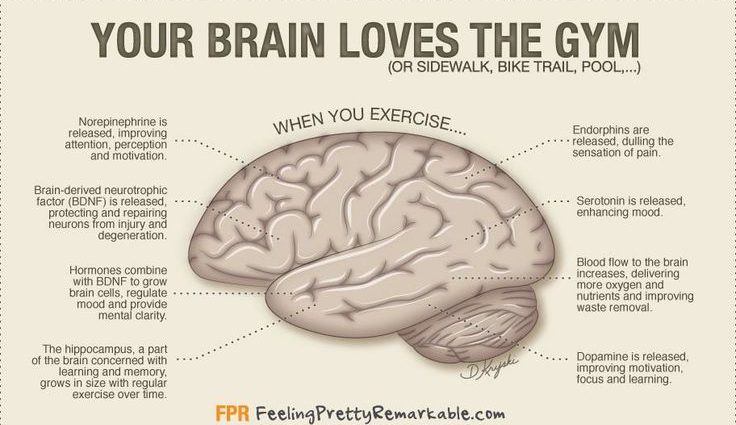We know that physical exercises are useful, but this knowledge does not force everyone to exercise regularly. You may be motivated by the fact that even a 10-minute warm-up or a walk around the neighborhood can help you better deal with anxiety and focus.
Exercise changes the anatomy, physiology, and function of the brain and, in the long term, can prevent or slow down the progression of Alzheimer’s disease and dementia, according to neuroscientist Wendy Suzuki.
Sounds great, but can this information inspire you to exercise daily?
To begin with, the neuroscientist advises thinking of training as a necessary body care procedure. So, for example, we don’t need motivation to brush our teeth. And the benefits of charging are certainly no less! One workout leads to the production of a huge amount of neurotransmitters dopamine, serotonin and norepinephrine, which allow you to better focus on things for the next 3 hours.
In addition, mood and memory improve, which, of course, is useful for both work and mental health.
In August 2020, Dr. Suzuki was once again convinced of this when she conducted an experiment with a group of students on Zoom. She first assessed each student’s level of anxiety, then asked everyone to do a 10-minute workout together, and then reassessed the participants’ anxiety.
“Even those students whose level of anxiety was close to clinical felt better after the training, the level of anxiety decreased to normal. That is why it is absolutely essential for our mental state to include exercise in our schedule, ”says the neuroscientist.
If you exercise regularly, you will soon be motivated to keep doing it and even train more.
And how much exactly do you need to train in order to properly feel the changes? A reasonable question to which there is still no clear answer.
Back in 2017, Wendy Suzuki recommended exercising for half an hour at least 3-4 times a week, but now she says that ideally, you should devote at least 15 minutes of exercise daily. “Start at least with walks,” she advises.
The best result is given by cardio training — any load that leads to an increase in heart rate. So theoretically, if you can’t go out for a run, try, for example, vacuuming your apartment at an intense pace. And, of course, if possible, take the stairs to your floor, not the elevator.
“If you exercise regularly, you will soon be motivated to keep doing it and even train more,” says Dr. Suzuki. — We are all often not in the mood and do not want to do exercises. At such a moment, we need to remember how good we usually feel after completing a workout.
The neuroscientist advises, whenever possible, to work out at the time of the day when you need the most productivity (for many, this is the morning). Although, if it doesn’t work out, do it when a minute appears, and focus on yourself, your condition and biological rhythms.
Most importantly, you don’t even need a gym membership to be in shape — work out in your living room, since you can find a lot of courses and workouts online. Search the Internet for accounts of professional trainers, subscribe and repeat the exercises for them. It would be a desire to stay healthy and productive.










